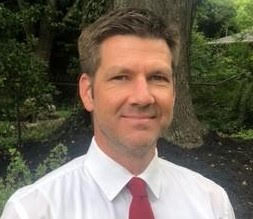Welcome Back
If you are a Program Participant, Program Facilitator, or JustFaith Network Member you are in the right place! Log in to see all your content.
Forgot your password?What our program participants are saying

What is different since I completed JustFaith? The way I pray; the way I eat; the way I shop; the way I parent; the way I serve; the way I view community; the way I view neighbor; the way I view enemy; the way I participate in church and community; the way I participate in policy issues; the way I begin and end my day.

The Just Action program is a vital resource for any group feeling called to justice ministry. I especially appreciated the time allotted to applying the conversations to local problems, as well as the step-by-step guided process for how to begin advocating for those in the community who are being affected by the issues we identified. Wherever you are on your journey in justice ministry, this is an excellent curriculum for honing your sense of engagement and advocacy in your community.

This module impacted me by opening my eyes and heart to the ongoing effects of white privilege. It moved me to be more aware of the long-term damage done to African Americans by historic systemic suppression and slavery.
